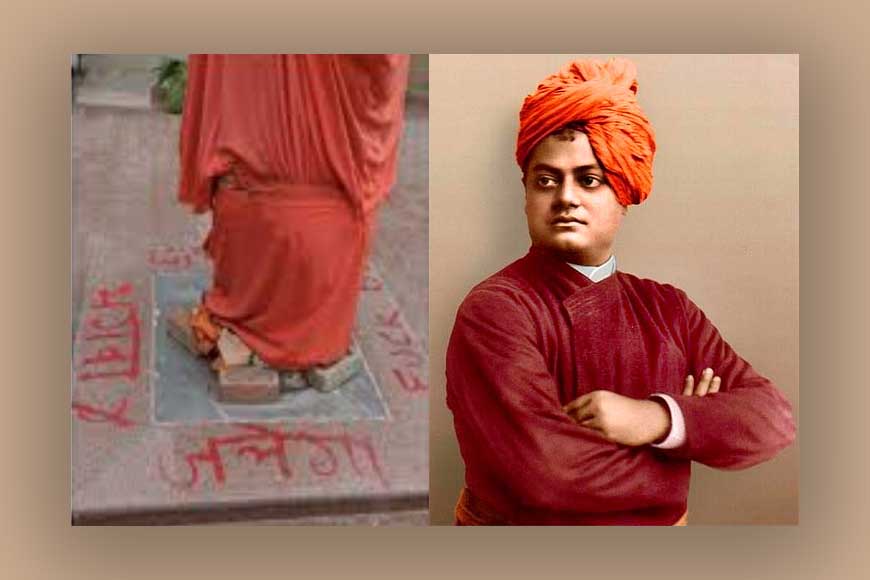Statue vandalised in JNU! Didn’t Swami Vivekananda preach tolerance?

Did Swami Vivekananda establish the supremacy of a religion at the Chicago World Parliament of Religions? Or did he bring forth a philosophy, a way of life, that Hindu religion is based on? Swami Vivekananda had delivered his speech at Chicago and took the world by storm. Today, when our country and the world is plagued on the lines of religious strife, his lecture at Chicago, holds much relevance. Unfortunately, his statue is being vandalised at one of the leading universities of India. Is it then that Swami Vivekananda’s teachings are not held in the right perspective?
The World Parliament of Religions was a gathering of more than 5,000 religious officials, scholars and historians, representing major world faiths. Held between September 11 to 27, 1893, the gathering was the first global interfaith event in modern history. Swami Vivekananda opened his speech with “Sisters and Brothers of America,” that itself received a standing ovation lasting more than a minute.
Quoting from Hindu texts of Bhagavad Gita, he repeatedly emphasized on messages of faith and tolerance. He called on the world’s faithful to fight against ‘sectarianism, bigotry, and its horrible descendant, fanaticism.’ He says: “They have filled the earth with violence, drenched it often and often with human blood, destroyed civilization and sent whole nations to despair. Had it not been for these horrible demons, human society would be far more advanced than it is now. But their time is come...”. Has their time really come?
Swami Vivekananda’s talk on tolerance had so much of an impact, that a penniless Sanyasi from India was again asked to speak two weeks later at the closing of the World Parliament of Religions. Here, Vivekananda brings in concept of world unity. “If people of different religions could gather at a conference, then they could co-exist throughout the world. Do I wish that the Christian would become a Hindu? God forbid. Do I wish the Hindu or Buddhist would become Christian? God forbid,” he said. “In the face of this evidence, if anybody dreams of the exclusive survival of his own religion and destruction of others, I pity him from the bottom of my heart, and point out to him that upon the banner of every religion will soon be written in spite of resistance: help and not fight, assimilation and not destruction, harmony and peace and not dissension.”









